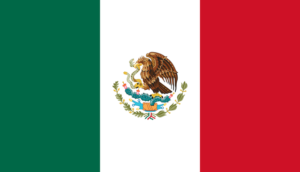
Region: Americas
Disability Definition
According to the 2011 General Act on the Inclusion of Persons with Disabilities, a person with a disability is defines as “any person who, for congenital or acquired reasons, has one or more physical, mental, intellectual or sensory impairments, whether permanent or temporary, and who, when interacting with the barriers imposed by the social environment, may prevent their full and effective inclusion, on an equal basis with others.”
Legislation
The General Act on the Inclusion of Persons with Disabilities (2011) was passed with the purpose to “regulate, as appropriate, Article 1 of the Political Constitution of the United Mexican States, establishing the conditions under which the State shall promote, protect and ensure the full exercise of the human rights and fundamental freedoms of persons with disabilities, ensuring their full inclusion in society within a framework of respect, equality, and equalization of opportunities.”
Mexico ratified the UN Convention on the RIghts of Persons with Disabiltiies on 17 December 2007.
Employer Legal Requirements
There is a “standard norm” (Norma Oficial Mexicana STPS) that establishes safety conditions that a workplace has to comply with in case it employs disabled persons. The standard norm defines “Employees with Disability” as those that for reason of birth or acquired thereafter, present one or more physical, mental, intellectual or sensorial deficiencies on a permanent or temporary basis.
Employers can ask for disability status information at Application stage, After offer and After employment commences — assuming employee has been given Mexican Law -compliant notice of the data collection but only if completion of the data field is optional. Greater security measures shall be implemented to protect this sensitive personal data.
Reference: Microsoft Word – Nom-004.doc (stps.gob.mx)
Accessibility Requirements
As part of Mexico’s status as a signatory to the UN Convention on the Rights of Persons with Disabilities, Mexico recognizes the rights of persons with disabilities to equal access to information and communication technologies.
The Federal Telecommunications and Broadcasting Law (2014) mandates that telecommunication services must be accessible to individuals with disabilities.
Cultural Norms
Due to stigma, many individuals with disabilities and their families choose to hide their disability. People with disabilities in Mexico report alienation and the sense of pity from their peers and others, rather than experiencing empathy or compassion. Many students with disabilities choose not to use disability services in school due to the strong stigma associated with it, and some schools even withhold diagnosis from students’ parents to avoid the child facing exclusion from their family.
Reference: Mexico-Country-Primer-on-Disabilities.pdf (paddc.org)
Business Practices/Examples
Additional content coming soon.
Insights
According to the 2020 INEGI Population and Housing Census, there were 6.1 million people with disabilities in Mexico.
Supplier Diversity
Certification is in place for women-owned business enterprises (WeConnect).
Certification is in place for LGBT-owned enterprises (NGLCC Network: Federación Mexicana de Empresarios LGBT (FME-LGBT)).
Identified for expansion phase of the Out and Equal Global Network.
Talent Sourcing Resources
Movimiento Asociativo Jalicience pro Personas con Discapacidad (MADIJAL): In Jalisco, an inter-institutional agreement was reached so that the Jalisco Secretary of Health, the Ministry of Labor and Social Welfare and the System for the Integral Development of the Family (DIF Jalisco) support the creation of an “Integral Model of Labor Linkage for Persons with Disabilities from Jalisco.”
Incluyeme.com helps companies to hire talent with disabilities. Incluyme.com helps people with disabilities find jobs in order to have a fair opportunity to support themselves and their families just like any other person. They operate in Argentina, Chile, Peru, Paraguay, Colombia, and Mexico.
CONADIS is a good resource to review lasting outcomes of the “National Work and Employment Program for People with Disabilities 2014-2018,” the first special program aimed at the labor inclusion of the people with some type of disability.
Additional Resources
Vida Independiente Mexico is an association dedicated to socially and occupationally integrating people with motor disabilities, through physical, psychological rehabilitation, wheelchair management, philosophy of Life, among others; achieving a true interaction of people in wheelchairs and people standing. They have Business Links, uncertain of the level of talent sourcing vs corporate social responsibility model.
The Latin American Network of Non-Governmental Organizations of Persons With Disabilities and their Families (RIADIS) is a network formed by organizations of persons with disabilities from 19 countries in Latin America and the Caribbean. Formed in 2002, RIADIS represents national DPOs as well as several NGOs acting as technical collaborators.
NGOs
Alianza Éntrale – Entrale.org.mx is a digital platform that promotes labor inclusion by linking companies and civil society organizations that provide services for the implementation of inclusion programs and people with disabilities.
Universidad Anáhuac – Promotes open positions, submitted by companies, to those who are a part of their program for students with disabilities.
